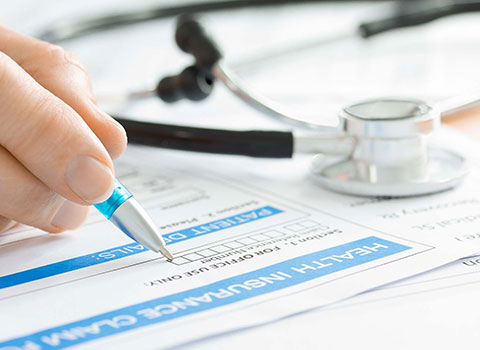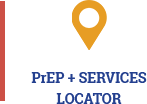 https://carethatfitsyou.org/wp-content/uploads/2023/10/8375_Clean-2.jpg
565
1200
Admin
https://carethatfitsyou.org/wp-content/uploads/2020/04/care-that-fits-you.png
Admin2023-10-12 13:28:512023-12-15 17:42:27Shigella: Protect yourself and your partners
https://carethatfitsyou.org/wp-content/uploads/2023/10/8375_Clean-2.jpg
565
1200
Admin
https://carethatfitsyou.org/wp-content/uploads/2020/04/care-that-fits-you.png
Admin2023-10-12 13:28:512023-12-15 17:42:27Shigella: Protect yourself and your partners
Talking to your provider about PrEP
Now that you’ve decided to add PrEP to your self-care routine, what’s next? Since PrEP isn’t available over the counter, you must visit your health care provider for a prescription. Here are a few things to know about talking PrEP with your provider.
Your provider may not know about PrEP
Some health care providers may not be familiar with PrEP. Be prepared to share information from the Centers for Disease Control. The CDC provides basic information for doctors about PrEP, as well as testing and screening procedures.
Begin the conversation
Different people have different reasons for taking PrEP. Be prepared to talk to your provider about why you want to start. Here are a few lines that might help you begin the conversation:
“I’ve researched HIV prevention strategies and PrEP seems best for me.”
“I use condoms but want the extra protection that PrEP provides.”
“My condom use is not always the best, so PrEP provides the safety net I need.”
Your provider may be hesitant to prescribe PrEP
Your health care provider may not know enough about PrEP or may feel that it’s a green light for condomless sex. Regardless of their reasons, you deserve a provider who’s looking out for your best interests. If your provider is uncomfortable with prescribing PrEP, find one that’s on your side! Ask friends if they can know any PrEP-friendly providers. You can also search this interactive map of health care providers in Massachusetts.
Know the facts about starting and staying on PrEP
In order for PrEP to work, you must take it as prescribed, aka as a regular part of your self-care routine. Missing a dose could increase your chances of getting HIV. You must also be HIV-negative to start taking PrEP, which means you provider will perform an HIV test before prescribing it. You’ll also need to be re-tested every three months or so, depending on your provider’s guidelines.
Research insurance and payment options
Before stepping into the provider’s office to start PrEP, review your insurance coverage to be sure it’s covered. If your insurance doesn’t cover PrEP or if you don’t have insurance, the Pre-Exposure Prophylaxis Drug Assistance Program (PrEPDAP) helps Massachusetts residents pay for approved medications, such as PrEP. Other programs offered by Gilead, the makers of Truvada® for PrEP and Descovy® for PrEP, may also help cover the cost.
 https://carethatfitsyou.org/wp-content/uploads/2023/10/8375_Clean-2.jpg
565
1200
Admin
https://carethatfitsyou.org/wp-content/uploads/2020/04/care-that-fits-you.png
Admin2023-10-12 13:28:512023-12-15 17:42:27Shigella: Protect yourself and your partners
https://carethatfitsyou.org/wp-content/uploads/2023/10/8375_Clean-2.jpg
565
1200
Admin
https://carethatfitsyou.org/wp-content/uploads/2020/04/care-that-fits-you.png
Admin2023-10-12 13:28:512023-12-15 17:42:27Shigella: Protect yourself and your partners https://carethatfitsyou.org/wp-content/uploads/2023/01/is-there-a-cure-STDs-480x350-1.png
350
480
Administrator
https://carethatfitsyou.org/wp-content/uploads/2020/04/care-that-fits-you.png
Administrator2023-02-01 21:31:302023-02-03 17:45:21New Gonorrhea Strain: What You Need to Know
https://carethatfitsyou.org/wp-content/uploads/2023/01/is-there-a-cure-STDs-480x350-1.png
350
480
Administrator
https://carethatfitsyou.org/wp-content/uploads/2020/04/care-that-fits-you.png
Administrator2023-02-01 21:31:302023-02-03 17:45:21New Gonorrhea Strain: What You Need to Know https://carethatfitsyou.org/wp-content/uploads/2022/08/Mpox_SelfCare_ResizedPhotos_300x250_0723.jpg
250
300
Administrator
https://carethatfitsyou.org/wp-content/uploads/2020/04/care-that-fits-you.png
Administrator2022-08-18 16:22:192024-04-12 15:50:38Mpox Information
https://carethatfitsyou.org/wp-content/uploads/2022/08/Mpox_SelfCare_ResizedPhotos_300x250_0723.jpg
250
300
Administrator
https://carethatfitsyou.org/wp-content/uploads/2020/04/care-that-fits-you.png
Administrator2022-08-18 16:22:192024-04-12 15:50:38Mpox Information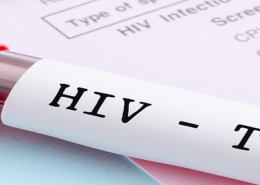 https://carethatfitsyou.org/wp-content/uploads/2022/04/HIV-testing.jpg
300
1000
Administrator
https://carethatfitsyou.org/wp-content/uploads/2020/04/care-that-fits-you.png
Administrator2022-04-19 15:23:482024-01-24 21:50:13What to Expect: HIV Testing
https://carethatfitsyou.org/wp-content/uploads/2022/04/HIV-testing.jpg
300
1000
Administrator
https://carethatfitsyou.org/wp-content/uploads/2020/04/care-that-fits-you.png
Administrator2022-04-19 15:23:482024-01-24 21:50:13What to Expect: HIV Testing https://carethatfitsyou.org/wp-content/uploads/2022/04/CTFYArticleHeader1_Small_1547949728.jpg
1707
2560
Administrator
https://carethatfitsyou.org/wp-content/uploads/2020/04/care-that-fits-you.png
Administrator2022-04-05 17:14:162023-12-29 19:26:11What to Expect: Starting PrEP
https://carethatfitsyou.org/wp-content/uploads/2022/04/CTFYArticleHeader1_Small_1547949728.jpg
1707
2560
Administrator
https://carethatfitsyou.org/wp-content/uploads/2020/04/care-that-fits-you.png
Administrator2022-04-05 17:14:162023-12-29 19:26:11What to Expect: Starting PrEP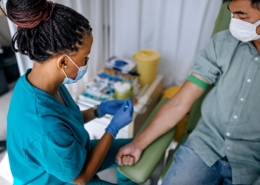 https://carethatfitsyou.org/wp-content/uploads/2022/04/CTFYArticleHeader2_Small_1338750215.jpg
1708
2560
Administrator
https://carethatfitsyou.org/wp-content/uploads/2020/04/care-that-fits-you.png
Administrator2022-04-05 17:14:022024-02-28 19:47:33What to Expect: Getting Tested for STDs/STIs
https://carethatfitsyou.org/wp-content/uploads/2022/04/CTFYArticleHeader2_Small_1338750215.jpg
1708
2560
Administrator
https://carethatfitsyou.org/wp-content/uploads/2020/04/care-that-fits-you.png
Administrator2022-04-05 17:14:022024-02-28 19:47:33What to Expect: Getting Tested for STDs/STIs https://carethatfitsyou.org/wp-content/uploads/2020/03/Recently-diagnosed-with-HIV-Ask-your-doctor-these-questions.jpg
350
480
Administrator
https://carethatfitsyou.org/wp-content/uploads/2020/04/care-that-fits-you.png
Administrator2022-01-31 19:30:162023-12-29 19:32:03Apretude – the first injectable PrEP
https://carethatfitsyou.org/wp-content/uploads/2020/03/Recently-diagnosed-with-HIV-Ask-your-doctor-these-questions.jpg
350
480
Administrator
https://carethatfitsyou.org/wp-content/uploads/2020/04/care-that-fits-you.png
Administrator2022-01-31 19:30:162023-12-29 19:32:03Apretude – the first injectable PrEP https://carethatfitsyou.org/wp-content/uploads/2021/06/40_b-1.jpg
350
480
Administrator
https://carethatfitsyou.org/wp-content/uploads/2020/04/care-that-fits-you.png
Administrator2021-06-11 19:31:522021-09-23 15:59:52Getting your partners treated for chlamydia
https://carethatfitsyou.org/wp-content/uploads/2021/06/40_b-1.jpg
350
480
Administrator
https://carethatfitsyou.org/wp-content/uploads/2020/04/care-that-fits-you.png
Administrator2021-06-11 19:31:522021-09-23 15:59:52Getting your partners treated for chlamydia https://carethatfitsyou.org/wp-content/uploads/2020/03/Talking-to-your-doctor-about-PrEP-f.jpg
350
480
ctfyadmin
https://carethatfitsyou.org/wp-content/uploads/2020/04/care-that-fits-you.png
ctfyadmin2020-03-23 21:37:482024-02-28 19:58:12Talking to your provider about PrEP
https://carethatfitsyou.org/wp-content/uploads/2020/03/Talking-to-your-doctor-about-PrEP-f.jpg
350
480
ctfyadmin
https://carethatfitsyou.org/wp-content/uploads/2020/04/care-that-fits-you.png
ctfyadmin2020-03-23 21:37:482024-02-28 19:58:12Talking to your provider about PrEP https://carethatfitsyou.org/wp-content/uploads/2020/03/How-do-I-choose-the-right-condom-f.jpg
350
480
ctfyadmin
https://carethatfitsyou.org/wp-content/uploads/2020/04/care-that-fits-you.png
ctfyadmin2020-03-23 21:26:382021-09-23 16:07:46How do I choose the right condom?
https://carethatfitsyou.org/wp-content/uploads/2020/03/How-do-I-choose-the-right-condom-f.jpg
350
480
ctfyadmin
https://carethatfitsyou.org/wp-content/uploads/2020/04/care-that-fits-you.png
ctfyadmin2020-03-23 21:26:382021-09-23 16:07:46How do I choose the right condom? https://carethatfitsyou.org/wp-content/uploads/2020/03/Conversation-starters-f.jpg
350
480
ctfyadmin
https://carethatfitsyou.org/wp-content/uploads/2020/04/care-that-fits-you.png
ctfyadmin2020-03-23 21:22:082021-09-23 16:08:20Conversation starters
https://carethatfitsyou.org/wp-content/uploads/2020/03/Conversation-starters-f.jpg
350
480
ctfyadmin
https://carethatfitsyou.org/wp-content/uploads/2020/04/care-that-fits-you.png
ctfyadmin2020-03-23 21:22:082021-09-23 16:08:20Conversation starters https://carethatfitsyou.org/wp-content/uploads/2020/03/Whats-the-deal-with-oral-sex-f.jpg
350
480
ctfyadmin
https://carethatfitsyou.org/wp-content/uploads/2020/04/care-that-fits-you.png
ctfyadmin2020-03-23 21:03:022021-09-23 16:08:54What’s the deal with oral sex?
https://carethatfitsyou.org/wp-content/uploads/2020/03/Whats-the-deal-with-oral-sex-f.jpg
350
480
ctfyadmin
https://carethatfitsyou.org/wp-content/uploads/2020/04/care-that-fits-you.png
ctfyadmin2020-03-23 21:03:022021-09-23 16:08:54What’s the deal with oral sex? https://carethatfitsyou.org/wp-content/uploads/2020/03/Tips-for-coming-out-to-your-doctor-f.jpg
350
480
ctfyadmin
https://carethatfitsyou.org/wp-content/uploads/2020/04/care-that-fits-you.png
ctfyadmin2020-03-23 20:59:162021-09-23 16:09:28Tips for coming out to your doctor
https://carethatfitsyou.org/wp-content/uploads/2020/03/Tips-for-coming-out-to-your-doctor-f.jpg
350
480
ctfyadmin
https://carethatfitsyou.org/wp-content/uploads/2020/04/care-that-fits-you.png
ctfyadmin2020-03-23 20:59:162021-09-23 16:09:28Tips for coming out to your doctor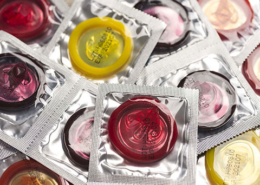 https://carethatfitsyou.org/wp-content/uploads/2020/03/Practicing-safer-sex-when-you-have-genital-herpes-f.jpg
350
480
ctfyadmin
https://carethatfitsyou.org/wp-content/uploads/2020/04/care-that-fits-you.png
ctfyadmin2020-03-23 20:54:232021-09-23 15:03:04Practicing safer sex when you have genital herpes
https://carethatfitsyou.org/wp-content/uploads/2020/03/Practicing-safer-sex-when-you-have-genital-herpes-f.jpg
350
480
ctfyadmin
https://carethatfitsyou.org/wp-content/uploads/2020/04/care-that-fits-you.png
ctfyadmin2020-03-23 20:54:232021-09-23 15:03:04Practicing safer sex when you have genital herpes https://carethatfitsyou.org/wp-content/uploads/2020/03/You-tested-positive-for-gonorrhea-or-chlamydia-Whats-next-f.jpg
350
480
ctfyadmin
https://carethatfitsyou.org/wp-content/uploads/2020/04/care-that-fits-you.png
ctfyadmin2020-03-23 20:50:102021-09-23 15:03:46You tested positive for gonorrhea or chlamydia. What’s next?
https://carethatfitsyou.org/wp-content/uploads/2020/03/You-tested-positive-for-gonorrhea-or-chlamydia-Whats-next-f.jpg
350
480
ctfyadmin
https://carethatfitsyou.org/wp-content/uploads/2020/04/care-that-fits-you.png
ctfyadmin2020-03-23 20:50:102021-09-23 15:03:46You tested positive for gonorrhea or chlamydia. What’s next? https://carethatfitsyou.org/wp-content/uploads/2020/03/You-tested-positive-for-HIV-Now-what-f.jpg
350
480
ctfyadmin
https://carethatfitsyou.org/wp-content/uploads/2020/04/care-that-fits-you.png
ctfyadmin2020-03-23 20:45:282021-09-23 15:04:34You tested positive for HIV. Now what?
https://carethatfitsyou.org/wp-content/uploads/2020/03/You-tested-positive-for-HIV-Now-what-f.jpg
350
480
ctfyadmin
https://carethatfitsyou.org/wp-content/uploads/2020/04/care-that-fits-you.png
ctfyadmin2020-03-23 20:45:282021-09-23 15:04:34You tested positive for HIV. Now what? https://carethatfitsyou.org/wp-content/uploads/2020/03/Ask-for-these-tests-at-your-next-checkup-f.jpg
350
480
ctfyadmin
https://carethatfitsyou.org/wp-content/uploads/2020/04/care-that-fits-you.png
ctfyadmin2020-03-23 20:17:462023-11-13 03:15:47Ask for these tests at your next checkup
https://carethatfitsyou.org/wp-content/uploads/2020/03/Ask-for-these-tests-at-your-next-checkup-f.jpg
350
480
ctfyadmin
https://carethatfitsyou.org/wp-content/uploads/2020/04/care-that-fits-you.png
ctfyadmin2020-03-23 20:17:462023-11-13 03:15:47Ask for these tests at your next checkup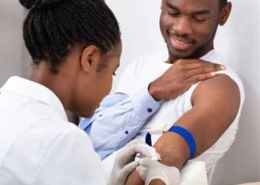 https://carethatfitsyou.org/wp-content/uploads/2020/03/Does-HIV-undetectable-mean-HIV-untransmittable-f3.jpg
350
480
ctfyadmin
https://carethatfitsyou.org/wp-content/uploads/2020/04/care-that-fits-you.png
ctfyadmin2020-03-23 20:13:492021-09-23 15:26:46Does HIV undetectable mean HIV untransmittable?
https://carethatfitsyou.org/wp-content/uploads/2020/03/Does-HIV-undetectable-mean-HIV-untransmittable-f3.jpg
350
480
ctfyadmin
https://carethatfitsyou.org/wp-content/uploads/2020/04/care-that-fits-you.png
ctfyadmin2020-03-23 20:13:492021-09-23 15:26:46Does HIV undetectable mean HIV untransmittable? https://carethatfitsyou.org/wp-content/uploads/2020/03/Eight-conversations-to-have-with-your-doctor-f.jpg
350
480
ctfyadmin
https://carethatfitsyou.org/wp-content/uploads/2020/04/care-that-fits-you.png
ctfyadmin2020-03-23 17:56:462021-09-23 15:28:17Eight conversations to have with your doctor
https://carethatfitsyou.org/wp-content/uploads/2020/03/Eight-conversations-to-have-with-your-doctor-f.jpg
350
480
ctfyadmin
https://carethatfitsyou.org/wp-content/uploads/2020/04/care-that-fits-you.png
ctfyadmin2020-03-23 17:56:462021-09-23 15:28:17Eight conversations to have with your doctor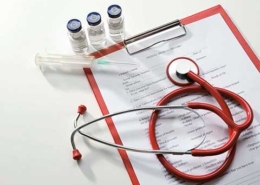 https://carethatfitsyou.org/wp-content/uploads/2020/03/Hep-A-B-C-Whats-the-difference-Light.jpg
350
480
ctfyadmin
https://carethatfitsyou.org/wp-content/uploads/2020/04/care-that-fits-you.png
ctfyadmin2020-03-23 17:29:052024-02-28 19:56:45Hep A, B, and C: What’s the difference?
https://carethatfitsyou.org/wp-content/uploads/2020/03/Hep-A-B-C-Whats-the-difference-Light.jpg
350
480
ctfyadmin
https://carethatfitsyou.org/wp-content/uploads/2020/04/care-that-fits-you.png
ctfyadmin2020-03-23 17:29:052024-02-28 19:56:45Hep A, B, and C: What’s the difference? https://carethatfitsyou.org/wp-content/uploads/2020/03/A-few-things-to-know-about-syphilis-f.jpg
350
480
ctfyadmin
https://carethatfitsyou.org/wp-content/uploads/2020/04/care-that-fits-you.png
ctfyadmin2020-03-23 16:42:362023-11-13 03:24:39A few things to know about syphilis
https://carethatfitsyou.org/wp-content/uploads/2020/03/A-few-things-to-know-about-syphilis-f.jpg
350
480
ctfyadmin
https://carethatfitsyou.org/wp-content/uploads/2020/04/care-that-fits-you.png
ctfyadmin2020-03-23 16:42:362023-11-13 03:24:39A few things to know about syphilis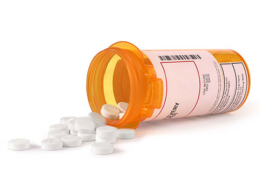 https://carethatfitsyou.org/wp-content/uploads/2020/03/PrEP-vs-PEP-Whats-the-difference-f.jpg
350
480
ctfyadmin
https://carethatfitsyou.org/wp-content/uploads/2020/04/care-that-fits-you.png
ctfyadmin2020-03-21 22:29:262023-12-15 18:19:24PrEP vs PEP: What’s the difference?
https://carethatfitsyou.org/wp-content/uploads/2020/03/PrEP-vs-PEP-Whats-the-difference-f.jpg
350
480
ctfyadmin
https://carethatfitsyou.org/wp-content/uploads/2020/04/care-that-fits-you.png
ctfyadmin2020-03-21 22:29:262023-12-15 18:19:24PrEP vs PEP: What’s the difference? https://carethatfitsyou.org/wp-content/uploads/2020/03/Talking-to-your-partner-about-safer-sex-f.jpg
350
480
ctfyadmin
https://carethatfitsyou.org/wp-content/uploads/2020/04/care-that-fits-you.png
ctfyadmin2020-03-21 22:23:442021-09-23 15:57:27Talking to your partner about safer sex
https://carethatfitsyou.org/wp-content/uploads/2020/03/Talking-to-your-partner-about-safer-sex-f.jpg
350
480
ctfyadmin
https://carethatfitsyou.org/wp-content/uploads/2020/04/care-that-fits-you.png
ctfyadmin2020-03-21 22:23:442021-09-23 15:57:27Talking to your partner about safer sex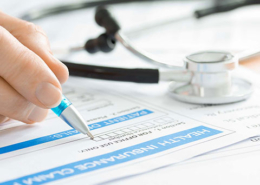 https://carethatfitsyou.org/wp-content/uploads/2020/03/How-to-pay-for-PrEP-f-1.jpg
350
480
ctfyadmin
https://carethatfitsyou.org/wp-content/uploads/2020/04/care-that-fits-you.png
ctfyadmin2020-03-13 19:18:212024-02-09 21:31:29How to pay for PrEP
https://carethatfitsyou.org/wp-content/uploads/2020/03/How-to-pay-for-PrEP-f-1.jpg
350
480
ctfyadmin
https://carethatfitsyou.org/wp-content/uploads/2020/04/care-that-fits-you.png
ctfyadmin2020-03-13 19:18:212024-02-09 21:31:29How to pay for PrEP https://carethatfitsyou.org/wp-content/uploads/2023/10/8375_Clean-2.jpg
565
1200
Admin
https://carethatfitsyou.org/wp-content/uploads/2020/04/care-that-fits-you.png
Admin2023-10-12 13:28:512023-12-15 17:42:27Shigella: Protect yourself and your partners
https://carethatfitsyou.org/wp-content/uploads/2023/10/8375_Clean-2.jpg
565
1200
Admin
https://carethatfitsyou.org/wp-content/uploads/2020/04/care-that-fits-you.png
Admin2023-10-12 13:28:512023-12-15 17:42:27Shigella: Protect yourself and your partners https://carethatfitsyou.org/wp-content/uploads/2023/01/is-there-a-cure-STDs-480x350-1.png
350
480
Administrator
https://carethatfitsyou.org/wp-content/uploads/2020/04/care-that-fits-you.png
Administrator2023-02-01 21:31:302023-02-03 17:45:21New Gonorrhea Strain: What You Need to Know
https://carethatfitsyou.org/wp-content/uploads/2023/01/is-there-a-cure-STDs-480x350-1.png
350
480
Administrator
https://carethatfitsyou.org/wp-content/uploads/2020/04/care-that-fits-you.png
Administrator2023-02-01 21:31:302023-02-03 17:45:21New Gonorrhea Strain: What You Need to Know https://carethatfitsyou.org/wp-content/uploads/2022/08/Mpox_SelfCare_ResizedPhotos_300x250_0723.jpg
250
300
Administrator
https://carethatfitsyou.org/wp-content/uploads/2020/04/care-that-fits-you.png
Administrator2022-08-18 16:22:192024-04-12 15:50:38Mpox Information
https://carethatfitsyou.org/wp-content/uploads/2022/08/Mpox_SelfCare_ResizedPhotos_300x250_0723.jpg
250
300
Administrator
https://carethatfitsyou.org/wp-content/uploads/2020/04/care-that-fits-you.png
Administrator2022-08-18 16:22:192024-04-12 15:50:38Mpox Information https://carethatfitsyou.org/wp-content/uploads/2022/04/HIV-testing.jpg
300
1000
Administrator
https://carethatfitsyou.org/wp-content/uploads/2020/04/care-that-fits-you.png
Administrator2022-04-19 15:23:482024-01-24 21:50:13What to Expect: HIV Testing
https://carethatfitsyou.org/wp-content/uploads/2022/04/HIV-testing.jpg
300
1000
Administrator
https://carethatfitsyou.org/wp-content/uploads/2020/04/care-that-fits-you.png
Administrator2022-04-19 15:23:482024-01-24 21:50:13What to Expect: HIV Testing https://carethatfitsyou.org/wp-content/uploads/2022/04/CTFYArticleHeader1_Small_1547949728.jpg
1707
2560
Administrator
https://carethatfitsyou.org/wp-content/uploads/2020/04/care-that-fits-you.png
Administrator2022-04-05 17:14:162023-12-29 19:26:11What to Expect: Starting PrEP
https://carethatfitsyou.org/wp-content/uploads/2022/04/CTFYArticleHeader1_Small_1547949728.jpg
1707
2560
Administrator
https://carethatfitsyou.org/wp-content/uploads/2020/04/care-that-fits-you.png
Administrator2022-04-05 17:14:162023-12-29 19:26:11What to Expect: Starting PrEP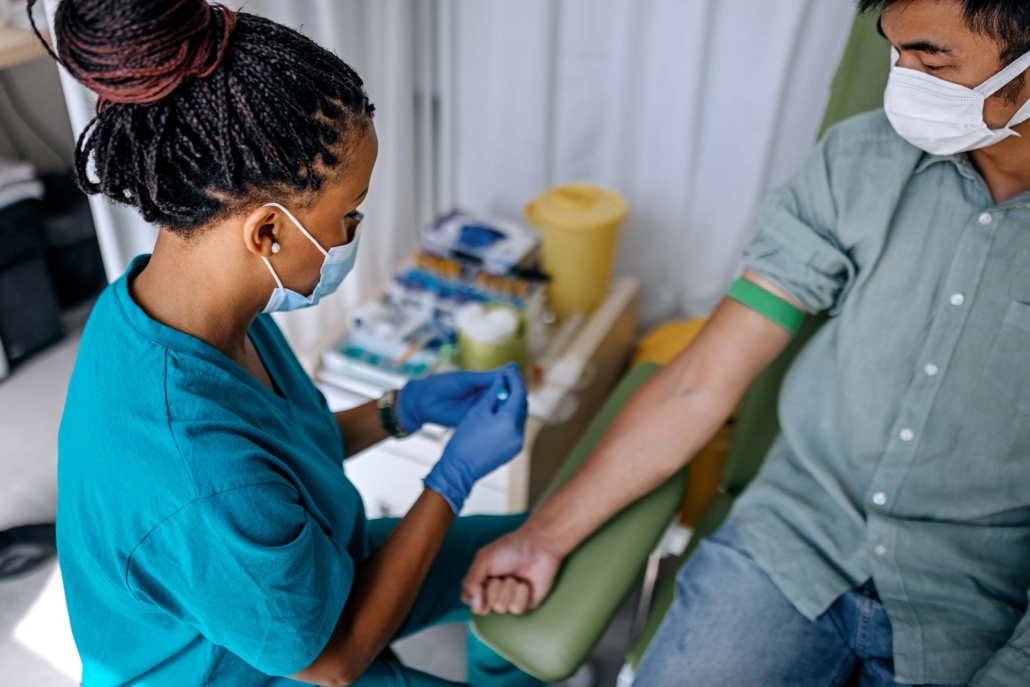 https://carethatfitsyou.org/wp-content/uploads/2022/04/CTFYArticleHeader2_Small_1338750215.jpg
1708
2560
Administrator
https://carethatfitsyou.org/wp-content/uploads/2020/04/care-that-fits-you.png
Administrator2022-04-05 17:14:022024-02-28 19:47:33What to Expect: Getting Tested for STDs/STIs
https://carethatfitsyou.org/wp-content/uploads/2022/04/CTFYArticleHeader2_Small_1338750215.jpg
1708
2560
Administrator
https://carethatfitsyou.org/wp-content/uploads/2020/04/care-that-fits-you.png
Administrator2022-04-05 17:14:022024-02-28 19:47:33What to Expect: Getting Tested for STDs/STIs https://carethatfitsyou.org/wp-content/uploads/2020/03/Recently-diagnosed-with-HIV-Ask-your-doctor-these-questions.jpg
350
480
Administrator
https://carethatfitsyou.org/wp-content/uploads/2020/04/care-that-fits-you.png
Administrator2022-01-31 19:30:162023-12-29 19:32:03Apretude – the first injectable PrEP
https://carethatfitsyou.org/wp-content/uploads/2020/03/Recently-diagnosed-with-HIV-Ask-your-doctor-these-questions.jpg
350
480
Administrator
https://carethatfitsyou.org/wp-content/uploads/2020/04/care-that-fits-you.png
Administrator2022-01-31 19:30:162023-12-29 19:32:03Apretude – the first injectable PrEP https://carethatfitsyou.org/wp-content/uploads/2021/06/40_b-1.jpg
350
480
Administrator
https://carethatfitsyou.org/wp-content/uploads/2020/04/care-that-fits-you.png
Administrator2021-06-11 19:31:522021-09-23 15:59:52Getting your partners treated for chlamydia
https://carethatfitsyou.org/wp-content/uploads/2021/06/40_b-1.jpg
350
480
Administrator
https://carethatfitsyou.org/wp-content/uploads/2020/04/care-that-fits-you.png
Administrator2021-06-11 19:31:522021-09-23 15:59:52Getting your partners treated for chlamydia https://carethatfitsyou.org/wp-content/uploads/2020/03/Talking-to-your-doctor-about-PrEP-f.jpg
350
480
ctfyadmin
https://carethatfitsyou.org/wp-content/uploads/2020/04/care-that-fits-you.png
ctfyadmin2020-03-23 21:37:482024-02-28 19:58:12Talking to your provider about PrEP
https://carethatfitsyou.org/wp-content/uploads/2020/03/Talking-to-your-doctor-about-PrEP-f.jpg
350
480
ctfyadmin
https://carethatfitsyou.org/wp-content/uploads/2020/04/care-that-fits-you.png
ctfyadmin2020-03-23 21:37:482024-02-28 19:58:12Talking to your provider about PrEP https://carethatfitsyou.org/wp-content/uploads/2020/03/How-do-I-choose-the-right-condom-f.jpg
350
480
ctfyadmin
https://carethatfitsyou.org/wp-content/uploads/2020/04/care-that-fits-you.png
ctfyadmin2020-03-23 21:26:382021-09-23 16:07:46How do I choose the right condom?
https://carethatfitsyou.org/wp-content/uploads/2020/03/How-do-I-choose-the-right-condom-f.jpg
350
480
ctfyadmin
https://carethatfitsyou.org/wp-content/uploads/2020/04/care-that-fits-you.png
ctfyadmin2020-03-23 21:26:382021-09-23 16:07:46How do I choose the right condom? https://carethatfitsyou.org/wp-content/uploads/2020/03/Conversation-starters-f.jpg
350
480
ctfyadmin
https://carethatfitsyou.org/wp-content/uploads/2020/04/care-that-fits-you.png
ctfyadmin2020-03-23 21:22:082021-09-23 16:08:20Conversation starters
https://carethatfitsyou.org/wp-content/uploads/2020/03/Conversation-starters-f.jpg
350
480
ctfyadmin
https://carethatfitsyou.org/wp-content/uploads/2020/04/care-that-fits-you.png
ctfyadmin2020-03-23 21:22:082021-09-23 16:08:20Conversation starters https://carethatfitsyou.org/wp-content/uploads/2020/03/Whats-the-deal-with-oral-sex-f.jpg
350
480
ctfyadmin
https://carethatfitsyou.org/wp-content/uploads/2020/04/care-that-fits-you.png
ctfyadmin2020-03-23 21:03:022021-09-23 16:08:54What’s the deal with oral sex?
https://carethatfitsyou.org/wp-content/uploads/2020/03/Whats-the-deal-with-oral-sex-f.jpg
350
480
ctfyadmin
https://carethatfitsyou.org/wp-content/uploads/2020/04/care-that-fits-you.png
ctfyadmin2020-03-23 21:03:022021-09-23 16:08:54What’s the deal with oral sex? https://carethatfitsyou.org/wp-content/uploads/2020/03/Tips-for-coming-out-to-your-doctor-f.jpg
350
480
ctfyadmin
https://carethatfitsyou.org/wp-content/uploads/2020/04/care-that-fits-you.png
ctfyadmin2020-03-23 20:59:162021-09-23 16:09:28Tips for coming out to your doctor
https://carethatfitsyou.org/wp-content/uploads/2020/03/Tips-for-coming-out-to-your-doctor-f.jpg
350
480
ctfyadmin
https://carethatfitsyou.org/wp-content/uploads/2020/04/care-that-fits-you.png
ctfyadmin2020-03-23 20:59:162021-09-23 16:09:28Tips for coming out to your doctor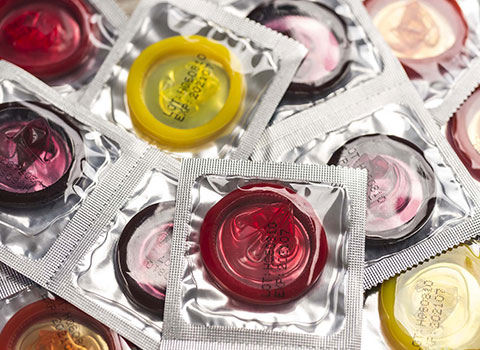 https://carethatfitsyou.org/wp-content/uploads/2020/03/Practicing-safer-sex-when-you-have-genital-herpes-f.jpg
350
480
ctfyadmin
https://carethatfitsyou.org/wp-content/uploads/2020/04/care-that-fits-you.png
ctfyadmin2020-03-23 20:54:232021-09-23 15:03:04Practicing safer sex when you have genital herpes
https://carethatfitsyou.org/wp-content/uploads/2020/03/Practicing-safer-sex-when-you-have-genital-herpes-f.jpg
350
480
ctfyadmin
https://carethatfitsyou.org/wp-content/uploads/2020/04/care-that-fits-you.png
ctfyadmin2020-03-23 20:54:232021-09-23 15:03:04Practicing safer sex when you have genital herpes https://carethatfitsyou.org/wp-content/uploads/2020/03/You-tested-positive-for-gonorrhea-or-chlamydia-Whats-next-f.jpg
350
480
ctfyadmin
https://carethatfitsyou.org/wp-content/uploads/2020/04/care-that-fits-you.png
ctfyadmin2020-03-23 20:50:102021-09-23 15:03:46You tested positive for gonorrhea or chlamydia. What’s next?
https://carethatfitsyou.org/wp-content/uploads/2020/03/You-tested-positive-for-gonorrhea-or-chlamydia-Whats-next-f.jpg
350
480
ctfyadmin
https://carethatfitsyou.org/wp-content/uploads/2020/04/care-that-fits-you.png
ctfyadmin2020-03-23 20:50:102021-09-23 15:03:46You tested positive for gonorrhea or chlamydia. What’s next?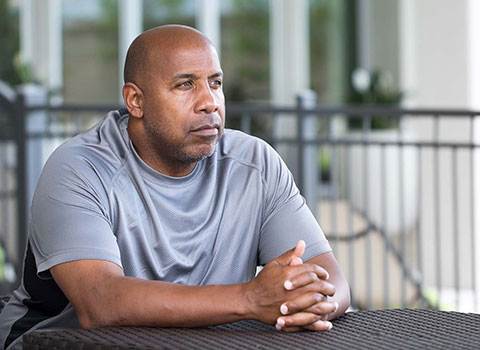 https://carethatfitsyou.org/wp-content/uploads/2020/03/You-tested-positive-for-HIV-Now-what-f.jpg
350
480
ctfyadmin
https://carethatfitsyou.org/wp-content/uploads/2020/04/care-that-fits-you.png
ctfyadmin2020-03-23 20:45:282021-09-23 15:04:34You tested positive for HIV. Now what?
https://carethatfitsyou.org/wp-content/uploads/2020/03/You-tested-positive-for-HIV-Now-what-f.jpg
350
480
ctfyadmin
https://carethatfitsyou.org/wp-content/uploads/2020/04/care-that-fits-you.png
ctfyadmin2020-03-23 20:45:282021-09-23 15:04:34You tested positive for HIV. Now what? https://carethatfitsyou.org/wp-content/uploads/2020/03/Ask-for-these-tests-at-your-next-checkup-f.jpg
350
480
ctfyadmin
https://carethatfitsyou.org/wp-content/uploads/2020/04/care-that-fits-you.png
ctfyadmin2020-03-23 20:17:462023-11-13 03:15:47Ask for these tests at your next checkup
https://carethatfitsyou.org/wp-content/uploads/2020/03/Ask-for-these-tests-at-your-next-checkup-f.jpg
350
480
ctfyadmin
https://carethatfitsyou.org/wp-content/uploads/2020/04/care-that-fits-you.png
ctfyadmin2020-03-23 20:17:462023-11-13 03:15:47Ask for these tests at your next checkup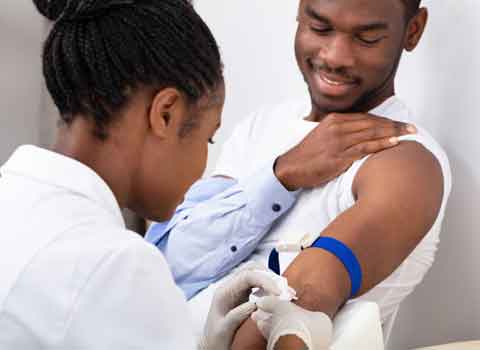 https://carethatfitsyou.org/wp-content/uploads/2020/03/Does-HIV-undetectable-mean-HIV-untransmittable-f3.jpg
350
480
ctfyadmin
https://carethatfitsyou.org/wp-content/uploads/2020/04/care-that-fits-you.png
ctfyadmin2020-03-23 20:13:492021-09-23 15:26:46Does HIV undetectable mean HIV untransmittable?
https://carethatfitsyou.org/wp-content/uploads/2020/03/Does-HIV-undetectable-mean-HIV-untransmittable-f3.jpg
350
480
ctfyadmin
https://carethatfitsyou.org/wp-content/uploads/2020/04/care-that-fits-you.png
ctfyadmin2020-03-23 20:13:492021-09-23 15:26:46Does HIV undetectable mean HIV untransmittable? https://carethatfitsyou.org/wp-content/uploads/2020/03/Eight-conversations-to-have-with-your-doctor-f.jpg
350
480
ctfyadmin
https://carethatfitsyou.org/wp-content/uploads/2020/04/care-that-fits-you.png
ctfyadmin2020-03-23 17:56:462021-09-23 15:28:17Eight conversations to have with your doctor
https://carethatfitsyou.org/wp-content/uploads/2020/03/Eight-conversations-to-have-with-your-doctor-f.jpg
350
480
ctfyadmin
https://carethatfitsyou.org/wp-content/uploads/2020/04/care-that-fits-you.png
ctfyadmin2020-03-23 17:56:462021-09-23 15:28:17Eight conversations to have with your doctor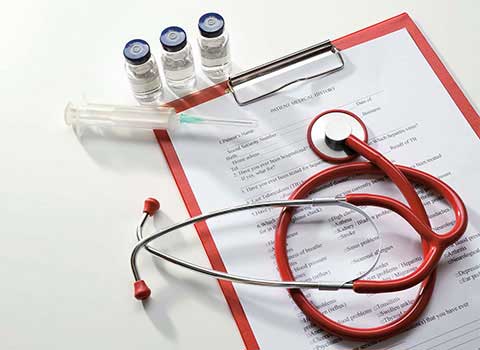 https://carethatfitsyou.org/wp-content/uploads/2020/03/Hep-A-B-C-Whats-the-difference-Light.jpg
350
480
ctfyadmin
https://carethatfitsyou.org/wp-content/uploads/2020/04/care-that-fits-you.png
ctfyadmin2020-03-23 17:29:052024-02-28 19:56:45Hep A, B, and C: What’s the difference?
https://carethatfitsyou.org/wp-content/uploads/2020/03/Hep-A-B-C-Whats-the-difference-Light.jpg
350
480
ctfyadmin
https://carethatfitsyou.org/wp-content/uploads/2020/04/care-that-fits-you.png
ctfyadmin2020-03-23 17:29:052024-02-28 19:56:45Hep A, B, and C: What’s the difference? https://carethatfitsyou.org/wp-content/uploads/2020/03/A-few-things-to-know-about-syphilis-f.jpg
350
480
ctfyadmin
https://carethatfitsyou.org/wp-content/uploads/2020/04/care-that-fits-you.png
ctfyadmin2020-03-23 16:42:362023-11-13 03:24:39A few things to know about syphilis
https://carethatfitsyou.org/wp-content/uploads/2020/03/A-few-things-to-know-about-syphilis-f.jpg
350
480
ctfyadmin
https://carethatfitsyou.org/wp-content/uploads/2020/04/care-that-fits-you.png
ctfyadmin2020-03-23 16:42:362023-11-13 03:24:39A few things to know about syphilis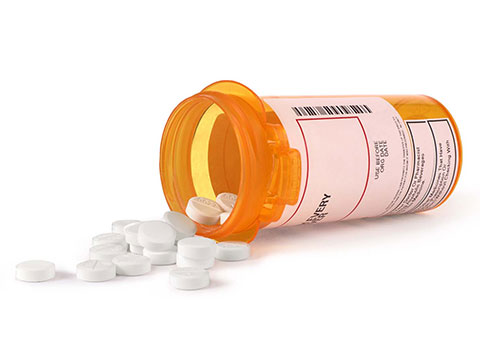 https://carethatfitsyou.org/wp-content/uploads/2020/03/PrEP-vs-PEP-Whats-the-difference-f.jpg
350
480
ctfyadmin
https://carethatfitsyou.org/wp-content/uploads/2020/04/care-that-fits-you.png
ctfyadmin2020-03-21 22:29:262023-12-15 18:19:24PrEP vs PEP: What’s the difference?
https://carethatfitsyou.org/wp-content/uploads/2020/03/PrEP-vs-PEP-Whats-the-difference-f.jpg
350
480
ctfyadmin
https://carethatfitsyou.org/wp-content/uploads/2020/04/care-that-fits-you.png
ctfyadmin2020-03-21 22:29:262023-12-15 18:19:24PrEP vs PEP: What’s the difference? https://carethatfitsyou.org/wp-content/uploads/2020/03/Talking-to-your-partner-about-safer-sex-f.jpg
350
480
ctfyadmin
https://carethatfitsyou.org/wp-content/uploads/2020/04/care-that-fits-you.png
ctfyadmin2020-03-21 22:23:442021-09-23 15:57:27Talking to your partner about safer sex
https://carethatfitsyou.org/wp-content/uploads/2020/03/Talking-to-your-partner-about-safer-sex-f.jpg
350
480
ctfyadmin
https://carethatfitsyou.org/wp-content/uploads/2020/04/care-that-fits-you.png
ctfyadmin2020-03-21 22:23:442021-09-23 15:57:27Talking to your partner about safer sexLooking for PrEP or
other services?
Search for services near you.
Is PrEP right for you?
Take a short quiz to learn more.


